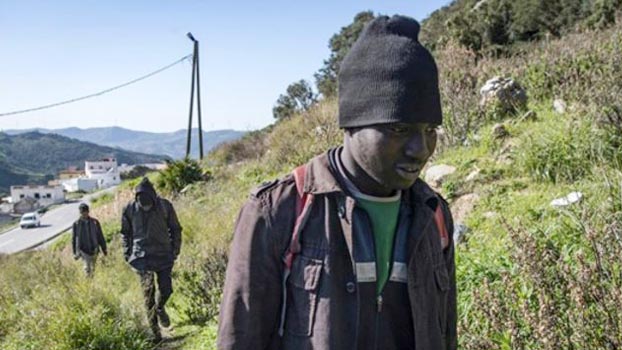Morocco border clampdown thwarts Europe-bound migrants

Mustapha left his home in Guinea two years ago to make the arduous journey to Morocco, hoping to cross the fence separating the kingdom from the Spanish enclave of Ceuta, reports BSS/AFP.
‘We’re going to cross this barrier,’ he told AFP, in defiance of increasing pressure on migrants from Moroccan authorities, supported by Europe. A few months ago, migrants like Mustapha were a common sight on roadsides or in camps near urban centres. Today, those aiming to reach Europe from Morocco prefer to stay hidden, fearing the waves of arrests that have elicited condemnation from NGOs.
In recent months, European pressure to shore up borders — bolstered by funding — has pushed Morocco to clamp down on migration. Two years after leaving Guinea, Mustapha, now 18, lives in abject poverty in a hideout in the Belyounech forest, a few kilometres (miles) from Ceuta on Morocco’s northern coast.
Cautiously, he ventures out to beg at the side of a road for a few coins, water or food, but it is rare that passing cars pay him any attention. ‘My dream is to go live in Norway and be a DJ,’ said the young man, wearing worn-out shoes and a black beanie, a colourful school satchel over his shoulder.
Travelling with two companions from the same neighbourhood back home, Ahmed and Omar, both 17, Mustapha took a perilous journey from Conakry, traversing Mali and Algeria, before crossing the closed border to enter Morocco. ‘That part was not easy,’ he said. To reach Ceuta, the trio needs to cross the barbed wire barrier which, along with the fence around the other Spanish enclave of Melilla, mark the only land borders between Africa and Europe.
The fence cuts across fields and forests, and Moroccan auxiliary force vehicles are posted along the border. Like Mustapha, many migrants live in precarious encampments deep within forests, keeping out of sight. Local aid groups are no longer authorised to meet with them, according to testimony gathered by AFP.
In Nador, a town bordering Melilla, the Moroccan Association of Human Rights has condemned ‘serious and repeated violations’, with migrants ‘illegally detained in very difficult conditions’ and ‘deportations’ to regions far from transit routes.
‘The authorities come into the forest looking for us and, if they find us, they send us back,’ Mustapha said. ‘They are looking for us today even,’ said his companion Omar, but added he was ready to seize ‘the right opportunity to get across’ the fence.



